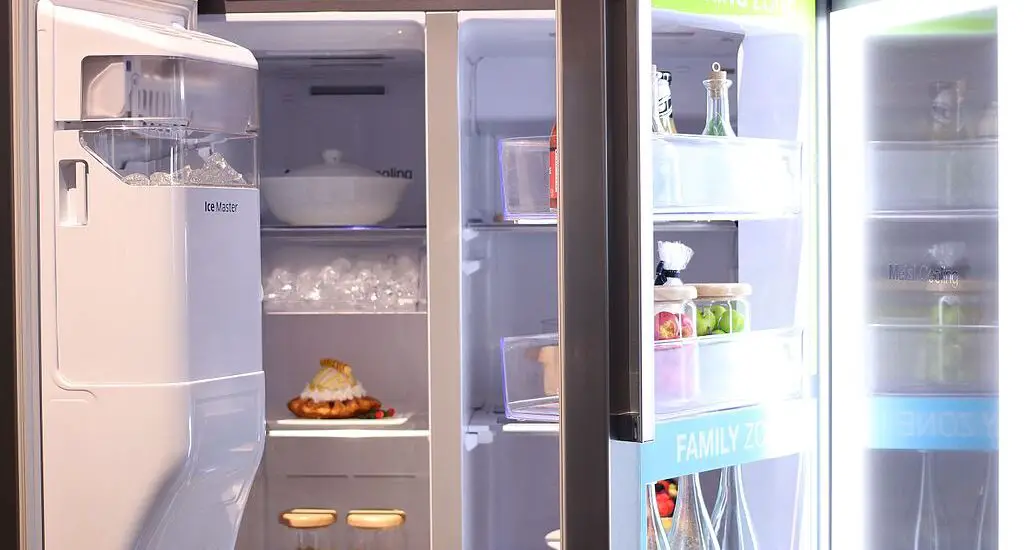When you’re in the market for a new refrigerator, the debate between absorption vs compressor fridges will inevitably cross your path. But you don’t have to be stuck in a whirl of confusion! This article will help you understand the differences between the two types of fridges in terms of efficiency, noise level, cooling capacity, and more.

Table of Contents
Quick Overview: Absorption vs Compressor Fridge
At their core, absorption, and compressor fridges have two distinct cooling systems. The compressor fridge, common in most households, is more efficient but a tad noisy. On the other hand, an absorption fridge, often seen in RVs and boats, operates silently but may not be as efficient. Each has its strengths and weaknesses. But, let’s not stop there. Shall we delve deeper?
Understanding Absorption and Compressor Fridges
Before we embark on our comparison journey, let’s first get acquainted with our two contestants: the absorption fridge and the compressor fridge. What makes them tick? What’s the science behind their cooling magic? Let’s find out.
What is an Absorption Fridge?
An absorption refrigerator is like a ninja – silent but effective. It operates using a heat source and chemical reaction to cool your food. It doesn’t require any mechanical parts to function, which accounts for its almost silent operation. Perfect for those who fancy a quiet kitchen or a peaceful road trip in their RV!
The Working Mechanism of Absorption Fridges
So, how does an absorption fridge perform its cooling wonders without a single mechanical part? It’s all down to a clever bit of chemistry involving three substances: ammonia, water, and hydrogen gas. These three amigos work in harmony, creating a continuous cycle of evaporation and condensation that results in a cool interior. A neat little science experiment right in your kitchen or RV, don’t you think?
What is a Compressor Fridge?
Now, let’s talk about the compressor fridge, the familiar hero of our homes. This fridge uses an electric pump (the compressor) to compress and circulate refrigerant through coils. This is the buzzing sound you hear when your fridge is working hard on a hot day to keep your ice cream from melting!
The Working Mechanism of Compressor Fridges
Compressor fridges are a tad more complex than their absorption counterparts. They function using a pretty nifty vapor-compression cycle. The compressor pressurizes refrigerant, turning it into a high-pressure, hot gas. This gas then travels through the condenser coils (at the back or beneath the fridge) where it loses heat and becomes a high-pressure liquid. It then flows into the evaporator coils inside the fridge, where it absorbs heat and turns back into a low-pressure gas. This process repeats, keeping your fridge cool and your food fresher for longer.
Check out these other related articles…
Refrigeration Compressor Design: The Ultimate Guide
Refrigeration Compressor Working Principle: Your Easy Guide
Refrigerator with Linear Compressor: A Comprehensive Guide
Gas for Fridge Compressor: Your Comprehensive Guide
How to Fix Refrigerator Compressor: A Handy DIY Guide
Key Differences Between Absorption and Compressor Fridges
Now that we’ve explored the fundamentals of absorption and compressor fridges, let’s take a comparative look. What makes each type stand out? What are their strengths and shortcomings? Let’s explore.
Efficiency: Absorption Refrigerator vs Compressor Efficiency
In the battle of efficiency, the compressor fridge generally takes the crown. These fridges cool quickly and maintain a consistent temperature, even when the weather is hot. Absorption fridges, while great in their own right, can struggle a bit in this area, especially in high ambient temperatures.
Power Consumption of Absorption and Compressor Fridges
Considering power usage, the compressor fridge can be more of a power hog, especially when running on electricity. Absorption fridges, on the other hand, are more flexible with power sources. They can run on electricity, battery, or propane, making them a versatile pick, especially for off-grid living.
Cooling Capacity: Absorption vs Compressor Fridge
When it comes to cooling capacity, compressor fridges again take the lead. They cool rapidly and are great at maintaining temperatures, irrespective of what’s happening outside the fridge. Absorption fridges can sometimes struggle to maintain their cool in hot weather.
Noise Level: Absorption or Compressor Fridge
As for noise, absorption fridges win hands down! They’re virtually silent due to their lack of mechanical parts, unlike compressor fridges, which can sometimes get a little loud, especially when the compressor kicks in.
Cost and Maintenance: Absorption vs Compressor Fridge
In terms of initial cost, absorption fridges tend to be more expensive than their compressor counterparts. They also may need more maintenance over time. Compressor fridges, while cheaper upfront, can result in higher electricity bills, so there’s a bit of a trade-off to consider.
Suitability: Absorption Fridge vs Compressor
The best fridge for you boils down to your specific needs. Absorption fridges are perfect for those seeking quiet operation and flexibility in power sources. Think RVs, boats, or off-grid living. Compressor fridges, on the other hand, are excellent for home use where efficiency, rapid cooling, and maintaining constant temperatures are a priority.
Choosing Between Absorption and Compressor Fridge
Now that we’ve shed some light on the key differences between absorption and compressor fridges, let’s dive into the factors to consider when deciding between the two.
Considerations for Choosing an Absorption Fridge
If you prioritize quiet operation, flexible power sources and your fridge usage is not intensive (like when you’re camping or on the road), then an absorption fridge could be your best bet. But, do keep in mind, they can struggle a bit with maintaining temperatures in hot weather and can be more expensive initially.
Considerations for Choosing a Compressor Fridge
If you’re looking for a fridge that cools rapidly, efficiently maintains temperature, and you don’t mind a bit of noise, a compressor fridge could be the way to go. They’re also generally less expensive upfront, making them a good option for home use.